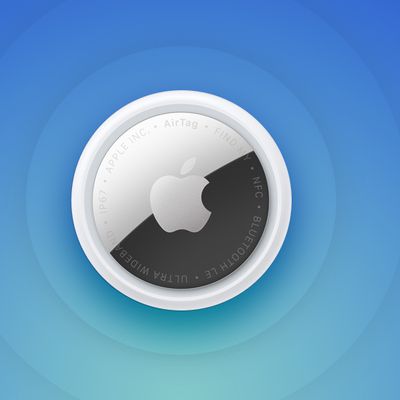Apple Granted License to Test Next-Generation 5G Wireless Technology
The FCC has granted Apple a license to test next-generation 5G wireless technologies, as brought to our attention by DSLReports.

In May, Apple submitted an application for an experimental license to test wireless technology on millimeter wave spectrum bands. Millimeter wave bands provide higher bandwidth and throughput up to 10Gb/s, but they are limited by line of sight issues that can cause problems in dense urban areas.
An excerpt from Apple's application with the FCC:
Apple Inc. seeks to assess cellular link performance in direct path and multipath environments between base station transmitters and receivers using this spectrum. These assessments will provide engineering data relevant to the operation of devices on wireless carriers’ future 5G networks.
Apple intends to transmit from two fixed points located at Apple-controlled facilities in Cupertino, California, where it is headquartered, and nearby Milpitas, according to its FCC application. Apple said it anticipates that it will safely conduct its experiments for a period not to exceed 12 months.
Apple will use the 28 and 39 GHz bands, which were among those opened up by the FCC last year for the purpose of next-generation 5G broadband.
It’s not entirely clear why Apple is planning to test millimeter wave performance, but it will join the likes of Google, Facebook, and major U.S. cellular carriers like AT&T, Verizon, Sprint, and T-Mobile, who are testing 5G networks in preparation to deploy the next-generation technology in the coming years.
Apple could perhaps be preparing its future iPhones to take advantage of 5G technology, or the company may have some other purpose in mind. The 28GHz band in particular has been earmarked for earth-to-space transmissions, an area Apple has been exploring based on recent hires with satellite expertise.
Popular Stories
Apple today introduced its first two physical products of 2026: a second-generation AirTag and the Black Unity Connection Braided Solo Loop for the Apple Watch.
Read our coverage of each announcement to learn more:Apple Unveils New AirTag With Longer Range, Louder Speaker, and More
Apple Introduces New Black Unity Apple Watch BandBoth the new AirTag and the Black Unity Connection Braided...
Alongside iOS 26.2.1, Apple today released an updated version of iOS 12 for devices that are still running that operating system update, eight years after the software was first released.
iOS 12.5.8 is available for the iPhone 5s and the iPhone 6, meaning Apple is continuing to support these devices for 13 and 12 years after launch, respectively. The iPhone 5s came out in September 2013,...
Update: Apple Creator Studio is now available.
Apple Creator Studio launches this Wednesday, January 28. The all-in-one subscription provides access to the Final Cut Pro, Logic Pro, Pixelmator Pro, Motion, Compressor, and MainStage apps, with U.S. pricing set at $12.99 per month or $129 per year.
A subscription to Apple Creator Studio also unlocks "intelligent features" and "premium...
Apple today confirmed to Reuters that it has acquired Q.ai, an Israeli startup that is working on artificial intelligence technology for audio.
Apple paid close to $2 billion for Q.ai, according to sources cited by the Financial Times. That would make this Apple's second-biggest acquisition ever, after it paid $3 billion for the popular headphone and audio brand Beats in 2014.
Q.ai has...
Apple today introduced the second-generation AirTag, with key features including longer range for tracking items and a louder speaker.
For those who are not familiar, the AirTag is a small accessory that you can attach to your backpack, keys, or other items. Then, you can track the location of those items in the Find My app on the iPhone, iPad, Mac, Apple Watch, and iCloud.com.
The new...





















